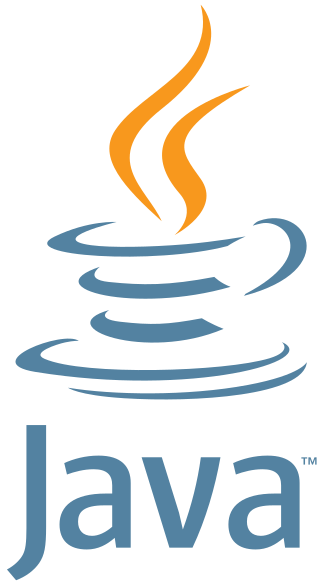
Java is a high-level, class-based, object-oriented programming language that is designed to have as few implementation dependencies as possible. It is a general-purpose programming language intended to let programmers write once, run anywhere (WORA), meaning that compiled Java code can run on all platforms that support Java without the need to recompile. Java applications are typically compiled to bytecode that can run on any Java virtual machine (JVM) regardless of the underlying computer architecture. The syntax of Java is similar to C and C++, but has fewer low-level facilities than either of them. The Java runtime provides dynamic capabilities that are typically not available in traditional compiled languages.

An operating system (OS) is system software that manages computer hardware and software resources, and provides common services for computer programs.
Java Platform, Micro Edition or Java ME is a computing platform for development and deployment of portable code for embedded and mobile devices. Java ME was formerly known as Java 2 Platform, Micro Edition or J2ME.

James Gosling is a Canadian computer scientist, best known as the founder and lead designer behind the Java programming language.
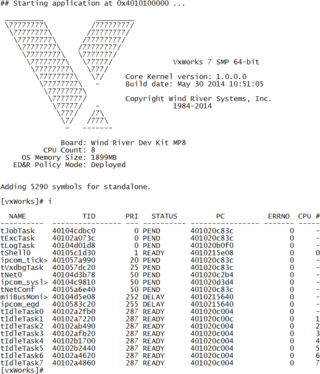
VxWorks is a real-time operating system developed as proprietary software by Wind River Systems, a subsidiary of Aptiv. First released in 1987, VxWorks is designed for use in embedded systems requiring real-time, deterministic performance and in many cases, safety and security certification for industries such as aerospace, defense, medical devices, industrial equipment, robotics, energy, transportation, network infrastructure, automotive, and consumer electronics.
This article presents a timeline of events in the history of computer operating systems from 1951 to the current day. For a narrative explaining the overall developments, see the History of operating systems.
OSF/1 is a variant of the Unix operating system developed by the Open Software Foundation during the late 1980s and early 1990s. OSF/1 is one of the first operating systems to have used the Mach kernel developed at Carnegie Mellon University, and is probably best known as the native Unix operating system for DEC Alpha architecture systems.
JavaOS is a discontinued operating system based on a Java virtual machine. It was originally developed by Sun Microsystems. Unlike Windows, macOS, Unix, or Unix-like systems which are primarily written in the C programming language, JavaOS is primarily written in Java. It is now considered a legacy system.
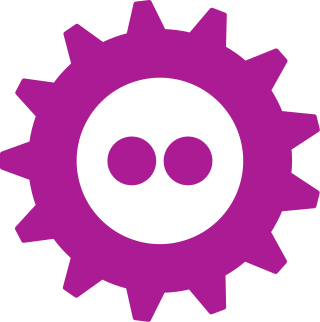
Free and Open source Software Developers' European Meeting (FOSDEM) is a non-commercial, volunteer-organized European event centered on free and open-source software development. It is aimed at developers and anyone interested in the free and open-source software movement. It aims to enable developers to meet and to promote the awareness and use of free and open-source software.
Java Card is a software technology that allows Java-based applications (applets) to be run securely on smart cards and more generally on similar secure small memory footprint devices which are called "secure elements" (SE). Today, a secure element is not limited to its smart cards and other removable cryptographic tokens form factors; embedded SEs soldered onto a device board and new security designs embedded into general purpose chips are also widely used. Java Card addresses this hardware fragmentation and specificities while retaining code portability brought forward by Java.

Java is a set of computer software and specifications that provides a software platform for developing application software and deploying it in a cross-platform computing environment. Java is used in a wide variety of computing platforms from embedded devices and mobile phones to enterprise servers and supercomputers. Java applets, which are less common than standalone Java applications, were commonly run in secure, sandboxed environments to provide many features of native applications through being embedded in HTML pages.
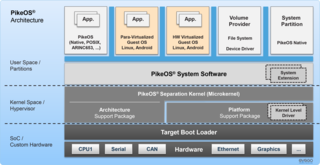
PikeOS is a commercial hard real-time operating system (RTOS) which features a separation kernel-based hypervisor. This hypervisor supports multiple logical partition types for various operating systems (OS) and applications, each referred to as a GuestOS. PikeOS is engineered to support the creation of certifiable smart devices for the Internet of Things (IoT), ensuring compliance with industry standards for quality, safety, and security across various sectors. In instances where memory management units (MMU) are not present but memory protection units (MPU) are available on controller-based systems, PikeOS for MPU is designed for critical real-time applications and provides up-to-standard safety and security.
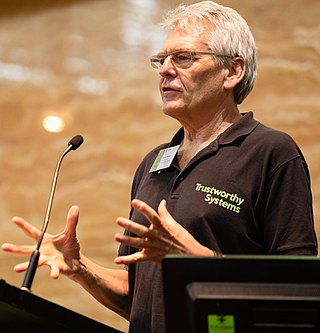
Gernot Heiser is a Scientia Professor and the John Lions Chair for operating systems at UNSW Sydney, where he leads the Trustworthy Systems group (TS).
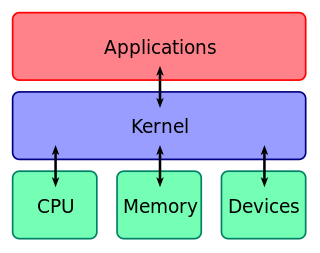
The kernel is a computer program at the core of a computer's operating system and generally has complete control over everything in the system. The kernel is also responsible for preventing and mitigating conflicts between different processes. It is the portion of the operating system code that is always resident in memory and facilitates interactions between hardware and software components. A full kernel controls all hardware resources via device drivers, arbitrates conflicts between processes concerning such resources, and optimizes the utilization of common resources e.g. CPU & cache usage, file systems, and network sockets. On most systems, the kernel is one of the first programs loaded on startup. It handles the rest of the startup as well as memory, peripherals, and input/output (I/O) requests from software, translating them into data-processing instructions for the central processing unit.
An embedded hypervisor is a hypervisor that supports the requirements of embedded systems.
A distributed operating system is system software over a collection of independent software, networked, communicating, and physically separate computational nodes. They handle jobs which are serviced by multiple CPUs. Each individual node holds a specific software subset of the global aggregate operating system. Each subset is a composite of two distinct service provisioners. The first is a ubiquitous minimal kernel, or microkernel, that directly controls that node's hardware. Second is a higher-level collection of system management components that coordinate the node's individual and collaborative activities. These components abstract microkernel functions and support user applications.

T-Kernel is an open source real-time operating system (RTOS) designed for 32-bit microcontrollers. It is standardized by the T-Engine Forum, which distributes it under a T-License agreement. There is also a corresponding Micro T-Kernel (μT-Kernel) implementation designed for embedded systems with 16-bit or 8-bit microcontrollers.

RIOT is a small operating system for networked, memory-constrained systems with a focus on low-power wireless Internet of things (IoT) devices. It is open-source software, released under the GNU Lesser General Public License (LGPL).
Time-triggered architecture, also known as a time-triggered system, is a computer system that executes one or more sets of tasks according to a predetermined and set task schedule. Implementation of a TT system will typically involve use of a single interrupt that is linked to the periodic overflow of a timer. This interrupt may drive a task scheduler. The scheduler will—in turn—release the system tasks at predetermined points in time.
Chorus Systèmes SA was a French software company that existed from 1986 to 1997, that was created to commercialise research work done at the Institut national de recherche en informatique et en automatique (INRIA). Its primary product was the Chorus distributed microkernel operating system, created at a time when microkernel technology was thought to have great promise for the future of operating systems. As such Chorus was in the middle of many strategic partnerships regarding Unix and related systems. The firm was acquired by Sun Microsystems in 1997.










